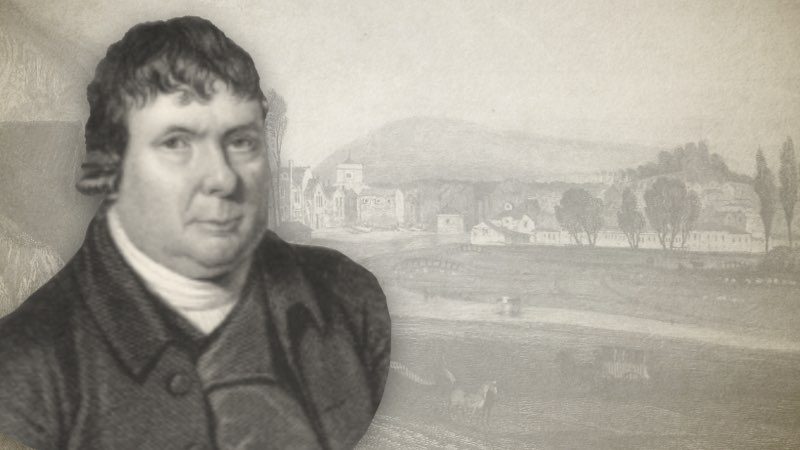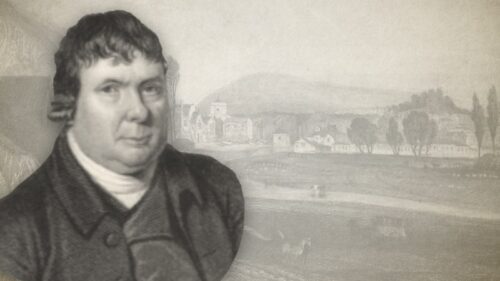William Huntington
William Huntington (1745-1813) was an English Calvinist preacher and prolific writer. His influence spread across the country and denominational lines.
William Huntington, The Child Of Liberty In Legal Bondage (Complete)
-
The Child of Liberty in Legal Bondage: Despondency (7/11)
I now proceed to the 7th particular. Despondency and desperation. The operations of this spirit of bondage, and the sensible displeasure of God felt in it, bow the soul down. "I am bowed down greatly; I go mourning all the day long." The Holy Spirit of God is grieved, and does not operate as a comforter; hence the complaint - "The comforter, that should relieve my soul, is far from me," Lam. i. 16. "Thou hast removed my soul far off from peace; I forgat prosperity; and I said, My strength and my hope are perished from the Lord," Lam. iii. 17, 18. The sensible presence of God appears to be wholly withdrawn, and nothing left but a bitter sense of our loss, and the…
-
The Child of Liberty in Legal Bondage: Barrenness (8/11)
8. To shew the sensible dryness and barrenness that attend legal bondage. By the law God doth not communicate his Spirit, and without his influences there can be no fruit. Refreshings come from God's presence; but in the law his presence can never be enjoyed; no good fruit, unless we abide in the vine; for under the legal yoke Christ profits us nothing, with respect to sensible union and communion; our joys withers, and love waxes cold. No blossoming like a rose, with divine enlargement; no heavenly-mindedness, no life and peace enjoyed; nothing felt within but God's anger, man's rebellion, and Satan's assaults; nothing without but gloominess, fresh scenes of troubles, and dissatisfaction with every thing. A preacher under this spirit may storm and rage,…
-
The Child of Liberty in Legal Bondage: Backwardness (9/11)
Which leads me to the 9th head, namely A backwardness and reluctance to all that is good. The scripture, in many places, speaks against such a soul, who cannot exercise faith on the promises. His heart is shut up, the Bible is a sealed book to him, and therefore it gets out of favour with him. "Repent, and do thy first works," &c. The ordinances are a dry breast. He cannot mix faith with the good tidings, and therefore comes with reluctance, rather driven with terror than drawn by love. "I have somewhat against thee; thou hast left thy first love." The cheerful countenances of lively saints are rather a grief and trouble to him than otherwise. He cannot help envying them even in the…
-
The Child of Liberty in Legal Bondage: Legal Strivings (10/11)
10. His legal strivings against sin and corruption while under this spirit of bondage. He finds his soul bitter, and his temper peevish. He murmurs and inwardly frets, at everything that makes against him; and indeed nothing seems to go well with him; his spirit is stiff and stubborn; God, in a way of providence as well as grace, seems "to walk contrary to him, and he walks contrary to God. He is froward; and God shews himself froward." His enmity against God is stirred up; and hard thoughts of God possess him, which at times are unadvisedly spoken with his lips; or, as the prophet says, "his tongue muttereth perverseness." Against these corruptions he strives hard; but they stir not a whit the less…
-
The Child of Liberty in Legal Bondage: Miserable Success (11/11)
11th head, Which is the miserable success that attends this legal labour. All his striving against sin in his own strength is like Peter's resolution, only betrays him into sin, and into the sieve of Satan; for without Christ he can do nothing. And every time he sins there is something fresh for the wrath of the law to work on, and fresh matter for conscience to accuse of; both which awaken his fears, and summon all his terrors about him. "If I sin, then thou markest me, and wilt not acquit me from mine iniquity. Thou renewest thy witnesses against me, and increasest thine indignation upon me: changes and war are against me," Job, x. 14, 17. Hardness of heart always attends this labour…


